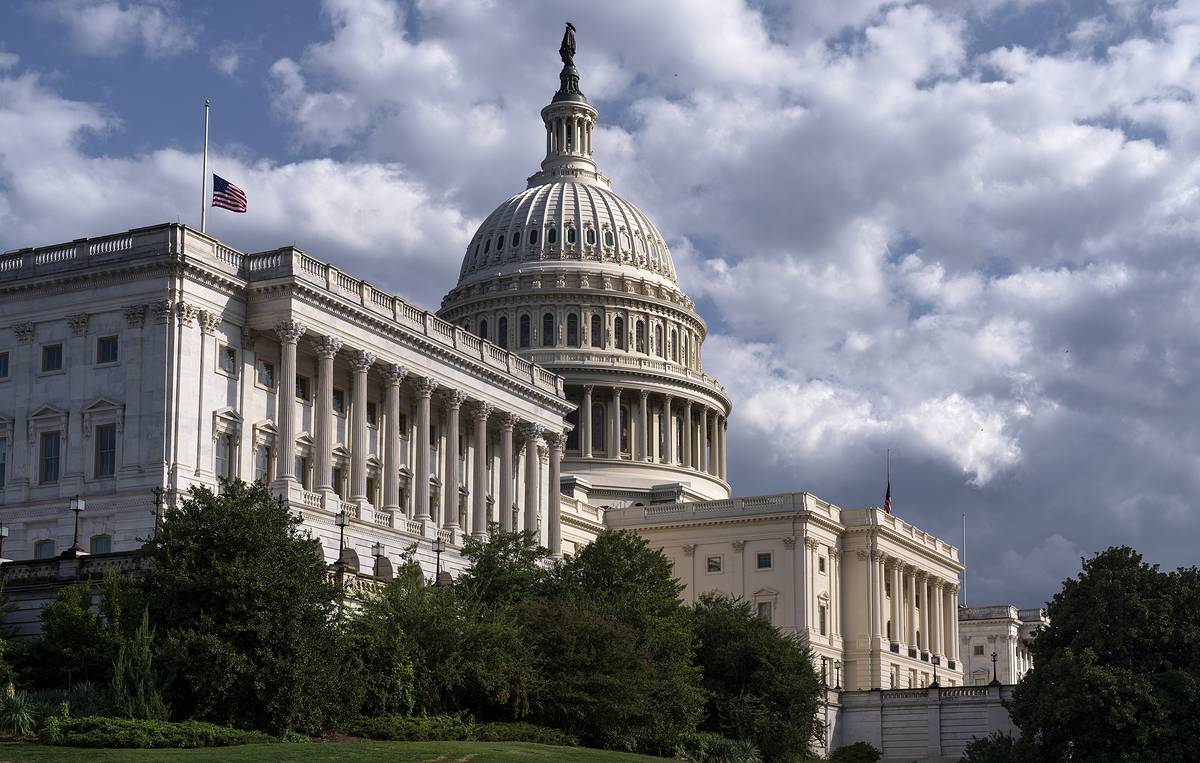By Tass
Copyright tass

MOSCOW, September 12. /TASS/. The European Union and the United Kingdom have emerged as Ukraine’s main suppliers of arms and financial support; Russian-Belarusian military exercises have sparked concern in Europe; and the assassination of American conservative leader Charlie Kirk highlights the deepening political and cultural divisions in the US. These stories topped Friday’s newspaper headlines across Russia.
Izvestia: Europe emerges as Ukraine’s main arms supplier as EU, UK expand aid programs
Ukraine is effectively shifting to the financial support of the European Union and the United Kingdom, which have already become Kiev’s leading source of weaponry, Russian Foreign Ministry Ambassador-at-Large Rodion Miroshnik told Izvestia. At a meeting of the contact group in the Ramstein format held in London, European countries announced new assistance programs for Ukraine. Germany will focus on developing long-range weapons, while the United Kingdom will prioritize drones. Against this backdrop, the United States continues to press for a peaceful settlement of the conflict in Ukraine.
“The question is how long they will be able to bear these costs going forward. At present, they are showing ambitions to independently provide financing, purchase weaponry – in other words, to work exclusively toward disrupting any agreements and sustaining Ukraine’s military capabilities for the continuation of bloodshed,” the diplomat told Izvestia. The pause in negotiations on resolving the crisis is dragging on, while Kiev is becoming more radical in its statements, Miroshnik emphasized.
For the European Union, the conflict carries in large measure an existential dimension. A potential “loss of face” should it end under conditions unacceptable to Brussels would result in significant reputational and possibly even economic risks, Senior Research Fellow at the Institute for International Studies of MGIMO Egor Sergeyev told Izvestia.
“Given the strategic and economic decisions already made within the EU, as well as the highly inertial nature of the Union’s policymaking, one can hardly expect that Brussels and other European capitals will undertake sharp and original steps in the spirit of the current US administration,” he said.
Sergeyev believes that one can rather expect some redistribution of financial resources from macroeconomic financial support for Ukraine towards increasing the military component.
In the long term, however, lending for the arming of Ukraine will not pass without consequences for European economies – France is on the brink of a serious crisis, while the UK has been there for quite some time already, and Germany has remained afloat, but it too is tightening its belt and scaling back the welfare state, political analyst and expert at the Russian International Affairs Council Kamran Gasanov told Izvestia.
He stressed that Western arms deliveries had not helped Ukraine over the past three years. Nor is there any indication that they will change the situation now, as the Russian armed forces have developed unprecedented offensive momentum.
Vedomosti: Russian-Belarusian military drills prompt sharp European reaction despite Moscow calling them standard
The joint Russian-Belarusian military exercises “Zapad-2025,” scheduled for September 12-16, are regular drills, Russian presidential spokesman Dmitry Peskov said. According to the Belarusian Ministry of Defense, the purpose of the exercises is to test the ability to ensure the military security of the Union State and to demonstrate readiness to repel potential aggression. Analysts interviewed by Vedomosti contend the drills are routine and defensive, while Europe portrays them as a threat in order to justify militarization and strengthen NATO cohesion.
Polish authorities decided to close their border with Belarus beginning on September 11. Prime Minister of Poland Donald Tusk, speaking on the TVP Info channel, directly linked the decision to the Russian-Belarusian maneuvers, describing the drills as a “rehearsal” for an attack on Poland.
The exercises are indeed routine, enabling Russia and Belarus to strengthen the cohesion of their joint regional military grouping and enhance the Union State’s defense capability, Associate Professor in the Department of International Relations and Russian Foreign Policy at MGIMO Vyacheslav Sutyrin told the newspaper.
NATO countries regularly conduct exercises near the borders of the Union State, and their scale and intensity have increased significantly over the past decade, the expert noted. In the West, each round of drills becomes the focus of a propaganda campaign with two goals: to exert political pressure and to reinforce NATO’s internal unity, Sutyrin argued.
It would be inaccurate to claim that “Zapad-2025” represents any kind of surprise or threat to Russia’s and Belarus’s neighbors, Head of the Center for Belarusian Studies at the Institute of Europe of the Russian Academy of Sciences Nikolay Mezhevich noted. However, European countries reacted sharply to the maneuvers because, within the framework of the so-called “mythical Russian threat,” they are seeking pretexts to justify their own militarization, Deputy Director of the Institute of CIS Countries Vladimir Zharikhin believes.
Izvestia: Murder of Charlie Kirk highlights deepening US divide amid rising political violence
The murder of American conservative leader Charlie Kirk has underscored the depth of divisions within the United States, where crime rates have reached their highest levels since the 1960s and 1970s, experts told Izvestia. The so-called “culture wars” have now entered an active phase. Half of Americans are convinced that the country is on the brink of a new civil war. Similar rhetoric is being heard in several EU states, where recent months have seen a surge in assassination attempts against politicians advocating alternative paths of national development.
Although the motive for the killing has not yet been established and no suspect has been detained, Kirk’s ideology and his close ties to Donald Trump could have been among the possible reasons behind the tragedy, Wayne State University professor Saeed Khan told Izvestia. Earlier, The New York Times reported that Kirk had been to the White House “hundreds of times” and belonged to Trump’s close circle of advisers.
Kirk’s assassination revealed the depth of America’s divisions, Russian Direct Investment Fund (RDIF) CEO Kirill Dmitriev wrote on his Telegram channel. Indeed, the United States is currently experiencing a storm of culture wars – Americans are deeply divided on fundamental questions of identity, including race, language, sex and gender, religion, and economics, former Republican Party adviser Jim Jatras told Izvestia.
The growing number of political assassination attempts in Europe is a consequence of the European Union’s political crisis, Valdai Club expert Andrey Kortunov told Izvestia. According to him, this trend reflects the broader logic of radicalization and polarization in European societies, where tolerance and a readiness for genuine discussion on controversial issues are increasingly absent.
This is precisely why politicians offering alternative paths of development, including on the issue of Ukraine, have become targets of assassination attempts. “Within the European Union itself, on the one hand, governments are weak, and on the other, there is no real debate or room for alternative positions, with the most popular parties or leaders, including Alternative for Germany (AfD), being excluded from elections. This means the system is failing to cope with the challenges it faces,” the expert concluded.
Kommersant: Arab states seek non-aggression guarantees from Israel after Qatar strikes
Arab countries hosting foreign emissaries of radical groups are concerned that Israel might strike their territories. Egypt requested non-aggression guarantees from the United States immediately after Israeli forces carried out operation “Fire Summit” on September 9, delivering a series of airstrikes on a building in Qatar’s capital where the Hamas Political Bureau was convening. So far, the only Arab country to obtain non-aggression guarantees from Israel through the US has been Iraq, as part of the deal for the release of Russian-Israeli researcher Elizabeth Tsurkov. Analysts told Kommersant that Israel’s unfinished objectives in Qatar heighten fears of repeated attacks and underscore the limits of regional sovereignty.
In recent days, the Egyptian authorities have been discussing with Qatar and Turkey – two countries that also host senior Hamas figures – how to safeguard Hamas leaders while simultaneously protecting their own sovereignty. A source told Emirati portal The National that the goal is to protect the negotiations on Gaza conflict resolution and the release of Israeli hostages, while Israel sends a clear signal that no one in the Arab world can prevent it from acting as it chooses.
A major concern for the Arab world remains the role of the United States and its Western allies in supporting the attack on Qatar. For instance, reports of a British Voyager refueling aircraft over Qatar on September 9 fueled rumors that the United Kingdom assisted the Israel Defense Forces (IDF). However, sources at the UK Ministry of Defense told Qatari portal The Middle East Eye that the Royal Air Force aircraft was operating in Qatari airspace solely as part of the regular UK-Qatar military exercises Soaring Falcon. Moreover, they noted that the Voyager’s refueling system is incompatible with Israeli aircraft.
Arab observers fear that Israel did not achieve all of its objectives in Qatar, which could prompt a repeat assassination attempt. According to sources cited by the Saudi newspaper Asharq Al-Awsat, at least two Hamas leaders who were targeted in Qatar survived the strikes, although both remain in critical condition.
Kommersant: Exotic sparkling wines gain popularity in Russia amid rising import duties
Due to increased import tariffs on wines from unfriendly countries, Russian distributors have begun sourcing sparkling wines from nations not traditionally known for producing this beverage. In January-July 2025, retail sales of sparkling wines from Brazil and Serbia alone in Russia surged by several hundred times. Shipments from India, Moldova, and Chile are also rising rapidly. Analysts told Kommersant that Russian distributors are increasingly sourcing sparkling wines from non-traditional producers due to higher import tariffs on unfriendly countries, highlighting market adaptation.
In January-July 2025, retail sales of Brazilian and Serbian sparkling wines in Russia increased several hundredfold, reaching 4,500 decaliters (dal) and 1,500 dal, respectively, according to participants in the alcohol market. Demand for wine from Belarus rose nearly 14-fold to 29,000 dal, and from India – 11-fold to 800 dal. Sales of Moldovan wines increased by 251.6% to 8,800 dal; Chilean wines – by 214.9% to 24,600 dal; and South African wines – by 126.8% to 11,700 dal. Noticeable growth has also been observed for beverages from Greece, Israel, and Azerbaijan, although this is mostly due to an almost negligible base last year.
“This is how the market responded to the increased import duties on products from unfriendly countries,” Procurement Director at the wine trading company Fort Daria Sologub told the newspaper. In August 2024, the duty on wine imports from unfriendly countries was raised from 20% of the cost to 25%, but at least $2 per liter of product.
Brazilian prosecco began entering the Russian market actively last summer. “Brazil is a BRICS country with established vineyards and winemaking traditions, and it is possible to find successful wines there. Even with a longer logistical chain, bringing products from there to Russia at reasonable prices is quite feasible,” Head of premium wine portfolio development at Luding Group Vladimir Kosenko said.
According to Anatoly Korneev, Vice President of Simple Group, all the aforementioned countries are attractive because they can offer genuinely the lowest prices for their products. The company is currently expanding its sparkling wine shipments from Chile, Brazil, and South Africa.
TASS is not responsible for the material quoted in these press reviews



